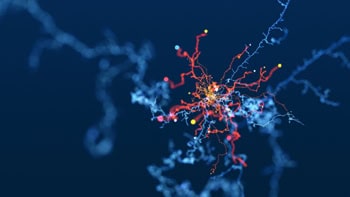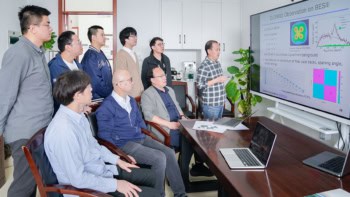Tim Gershon is a professor of physics at the University of Warwick, UK. Since completing his PhD at the University of Cambridge in 2000, his research career has taken him to experiments in Japan and California as well as CERN, where he was physics co-ordinator for the LHCb experiment 2012–2013. His research interests include flavour physics, CP violation and heavy-quark physics

What skills do you use every day in your job?
As is the case for most academics, the job has a mixture of elements. A lot of my research and interaction with students involves analytical skills. Some of it is subject-specific knowledge, but a great deal of it is understanding how to interact with people – finding good ways to give constructive feedback and suggestions for how people can move things forward. I find that it’s important to do that while still being honest so that people realize when things are not working out, but also understand how to improve.
One big challenge is understanding how to work most efficiently. No matter how well you manage your time there are still only 24 hours in a day, so you have to be realistic about what you can achieve in the available time. Prioritization is a key skill — knowing when something is really important, and that you may have to drop everything else in order to make sure it gets done. But often it’s a juggling act, keeping several tasks on the go at the same time.
What do you like best and least about your job?
The thing that I enjoy best in my job is the thrill of discovery — if that’s not too pretentious a way of putting it – the feeling that at any moment we could have found something of interest in the data. I also enjoy the challenge of figuring out problems. Sometimes you can spend a lot of time scratching your head trying to understand what is going on, and there is great satisfaction when eventually you achieve it. That could be understanding some strange effect in the data, or overcoming some other problem.
I’m sure I won’t be the first person to say that the thing I like least is admin. We seem to be very good at inventing bureaucratic processes that may have been initiated for a good reason, but often outlive their purpose and nobody seems to be willing to get rid of them.
What do you know today, that you wish you knew when you were starting out in your career?
It’s tempting to say that I wish I had known what all the major discoveries were going to be. Then I could have got ahead of the curve and chosen to work on those. But if I already had that knowledge then I would not have enjoyed working on understanding it all, so I guess I don’t wish for that after all.
Really my answer to this is more focused on the human aspect — I would have like to have learnt a little earlier on the best ways of interacting with people. This also means learning about yourself, and by now I appreciate that sometimes it’s best to have a breath of fresh air or a cup of tea before responding to that difficult e-mail.
Over the course of my career, I also think that as a field we have learnt a lot about diversity and how it benefits the workplace, though there is still much to improve. I would like to think that I have always championed diversity, but it is certainly an area where it would have been beneficial to the field as a whole if we had done more about this, earlier, and I include myself in that.



